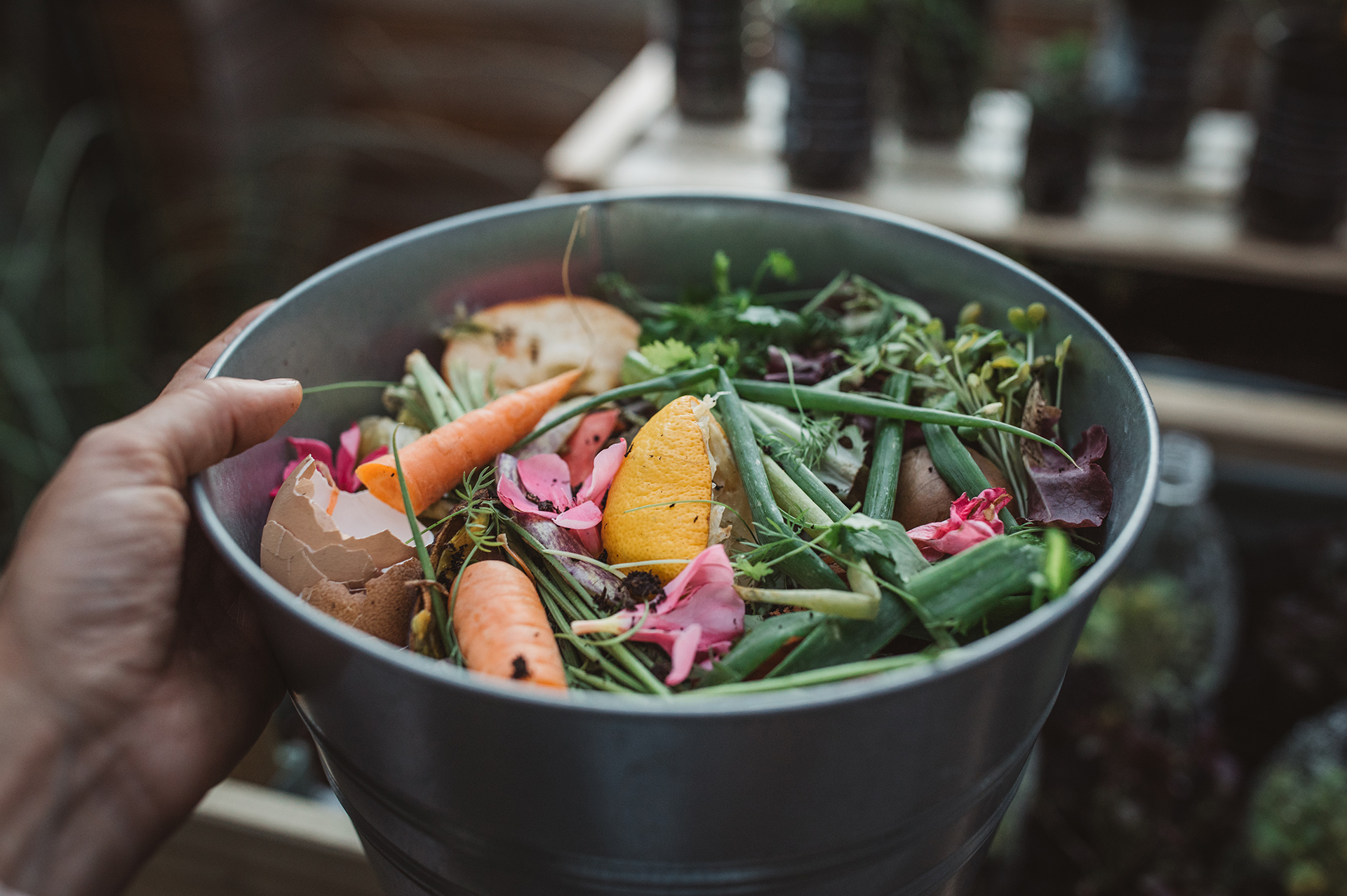Kotona kertyy väistämättä biojätettä, vaikka syö kuinka tarkkaan kaiken ruoan. Kaikki keittiössä syntyvä elintarvikejäte kuuluu biojätteeseen.
Biojätteen kierrätys on tärkeää ympäristölle, koska silloin energia ja ravinteet saadaan uusiokäyttöön. Lajitteleminen kannattaa myös taloudellisesti: kierrättämällä säästät talon kustannuksissa, sillä sekajätteen hinta ovat biojätettä korkeampi. Taloissamme on omat jäteastiat tai imuputket biojätteelle.
Biojätteisiin voit laittaa mm.
- ruoantähteet ja pilaantuneet elintarvikkeet
- luut, kananmunan kuoret
- hedelmien ja vihannesten kuoret ja muut osat
- kahvinporot, teepussit ja suodatinpaperit
- kasvinosat
- talouspaperit, nenäliinat, lautasliinat – imevät kosteutta
- jähmettynyt rasva
- pienet puutikut (jäätelö- ja hammastikut)
Biojäteastiaan eivät kuulu
- nesteet
- biohajoavat vaipat ja terveyssiteet
- eläinten jätökset
- lakaisupöly ja imurin pölypussit
- multa ja hiekka
- muovipussit ja -pakkaukset.
Viemäri ei oikea paikka biojätteelle
Biojätettä ei tule kaataa asunnon viemäreihin, koska ruoantähteet ja erityisesti niissä oleva rasva aiheuttavat tukoksia putkistoon. Muista siis kierrättää!
Biojätteestä multaa ja biokaasua
Biojäte käsitellään kompostoimalla tai mädättämällä niin, että metaani ei pääse ilmakehään. Kierrätettyä biojätettä hyödynnetään energiantuotannossa ja siitä valmistetaan myös multaa.
Näin pidät hajut kurissa
Biojäte saattaa etenkin kesällä päästää hajuja asuntoon – muutama niksi auttaa tähän.
- Tyhjennä biojäteastiasi usein. Etenkin liha- ja kalatuotteet kannattaa viedä jätehuoneeseen viipymättä.
- Pidä biojäteastiasi puhtaana pesemällä.
- Jäähdytä lämmin biojäte ja anna jätteen kuivahtaa ennen pussiin laittamista.
- Laita biojätepussin pohjalle käytettyä talouspaperia tai kananmunakenno – ne imevät nesteet.
- Käytä biojätteen pakkaamiseen paperipussia tai maatuvaa biojätepussia. Näin sekä kotisi jäteastia että jätehuoneen astiat eivät likaannu ja aiheuta hajuhaittoja.


